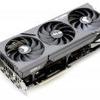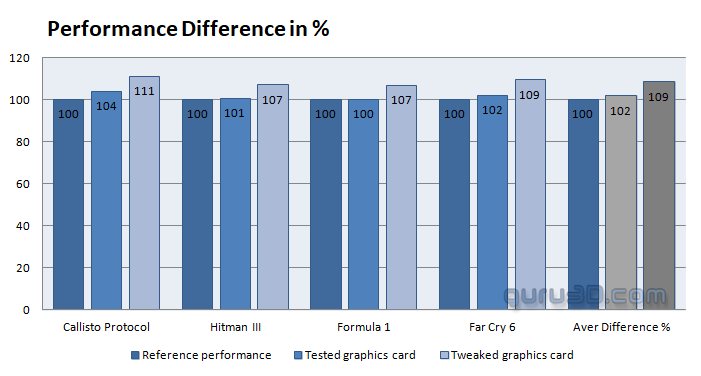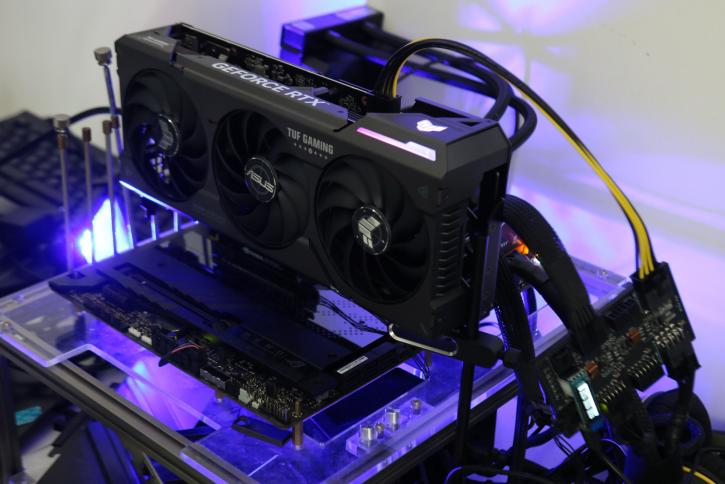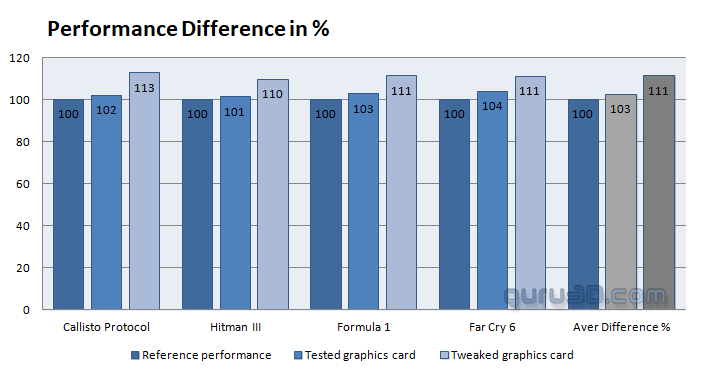Final words and conclusion
Analysis
The ASUS TUF Gaming graphics card provides acceptable Full HD gaming performance, combined with an appealing design and low noise output. The primary concern regarding this product line is its high cost, with an additional charge of roughly $75 proving to be a significant consideration. The TUF Gaming model demonstrates a minimal performance increase of approximately 2% over the reference model, highlighting ASUS's capability to produce high-quality, low-noise graphics cards. Users have the option of manually adjusting the card settings to further boost performance by an roughly 9%.
Performance
The GeForce RTX 4060 graphics card are designed for gaming performance and proper rendering quality at Full HD (FHD) resolutions and can even function efficiently up to Quad HD (QHD) resolutions. However, starting at QHD, reliance on features such as Deep Learning Super Sampling 3 (DLSS 3 FG) becomes necessary even more so when enabling ray tracing. The inclusion of a new generation of Ray Tracing and Tensor cores, which are more potent, helps out in that choice. 8GB, however, remains to be on the shy side, especially with DLSS3 Frame generation in mind (eats VRAM). 12GB and a slightly wider memory bus would have been the way to go NVIDIA.
Cooling & noise levels
In terms of operation, the graphics card demonstrates a power consumption slightly at roughly 150 watts at full load, averaging around 135W as per our measurements. This power intake corresponds directly to the heat produced by the GPU, which is housed within a self-contained structure. The card maintains a noise level of approximately 33~34 dBA, which can be classified as silent. During rigorous tasks, the card's temperature may rise to roughly 60°C. The fluctuation in this temperature can be attributed to the effectiveness of the airflow within the computer case. The thermal imaging analysis conducted via FLIR, demonstrates no substantial issues regarding heat dissipation. The card also has a silent BIOS option; you can shave off another 2 DBa at a cost of a small temp increase. Really, at these levels, we advise the default performance BIOS mode as the silent BIOS mode became irrelevant.
Coil whine
Any graphics card can exhibit coil squeal. It's just a matter of how much exactly. For the card it's at a level you can barely hear when you hit high framerates. In a closed chassis, that noise would fade away in the background. For this particular card, we've hardly been able to notice it.
Pricing
NVIDIA has introduced this new graphics card series priced at $399, which does not bring affordability back to the market. This price point is reminiscent of the 3060 Ti, indicating a shift from the inflated prices seen during the cryptocurrency mining era. Although the prices have remained higher than expected for unknown reasons, the card offers enough performance for Full HD resolution. With the help of a DLSS assist, it can even deliver good results. The Nvidia GeForce RTX 4060 Ti Founders Edition will include 8GB of memory, with an option for a 16GB model. As for the GeForce RTX 4060, Nvidia has not released any comments yet. However, it's confirmed that the entry-level Ada Lovelace graphics card for gaming enthusiasts will debut at $299 USD, exclusive of VAT.
- GeForce RTX 4060 Ti 8GB: Will be available from May 24 for $399 USD
- GeForce RTX 4060 Ti 16GB: Will be released in July for $499 USD
- GeForce RTX 4060 8GB: Will also be released in July for $299 USD
Tweaking
You can enhance your GPU's performance by fine-tuning the clock frequency and memory speed. A clock frequency increase of approximately +175 MHz is possible with a bit of added voltage. Consequently, you can anticipate your GPU boost clock frequency around the ~3050MHz range, contingent on the dynamic frequencies of different game titles, furthermore, by modifying the memory speed to 21 Gbps. Add to that a power limiter increase of up-to %25 ... Accumulated, you can expect a ~10% performance improvement in demanding GPU scenarios compared to the reference (baseline) performance.
Overall the card is 1% faster than founders edition performance, but tweaked is 11% faster.
Conclusion
ASUS has introduced a well designed graphics card that delivers deliver a balanced gaming experience in the FHD and even WQHD range. If course the culprit of this series is pricing, 8GB memory and a too-small perf bump over the last gen product. This is aggravating a lot of end-users. The mining hype is gone, yet the prices remain high. For a card positioned in the Full HD segment, being priced at $399 + the TUF premium , well, it's all just too much. It also begs the question, do entry and mainstream level product series really need premium designed products? Objectively looking at the product design, the TUF Gaming OC RTX 4060 Ti offers low noise levels at roughly 34 DBa. Despite its default performance improvement(over founder performance) of 2%, the card series can still be recommended to those prioritising silent operation and an appealing look inside their PC chassis. The card also is very tweakable adding an extra 10% performance seen from reference performance. Considering its price tag, the Founders Edition is the more cost-effective option, as the TUF is expected to bear a price premium of at least $75, which accumulated doesn't make much sense in the mainstream domain. In conclusion, the product's quality isn't disputed. Instead, the issue lies in the overall price range, not justifying a mainstream product's additional $75 premium. But looking at this this product as to what it is, it is premium in its design.
- Download NVIDIA GeForce drivers
- Sign up to receive a notification when we publish a new article.
- Or go back to Guru3D's front page
- Hilbert, LOAD"*",8,1.




